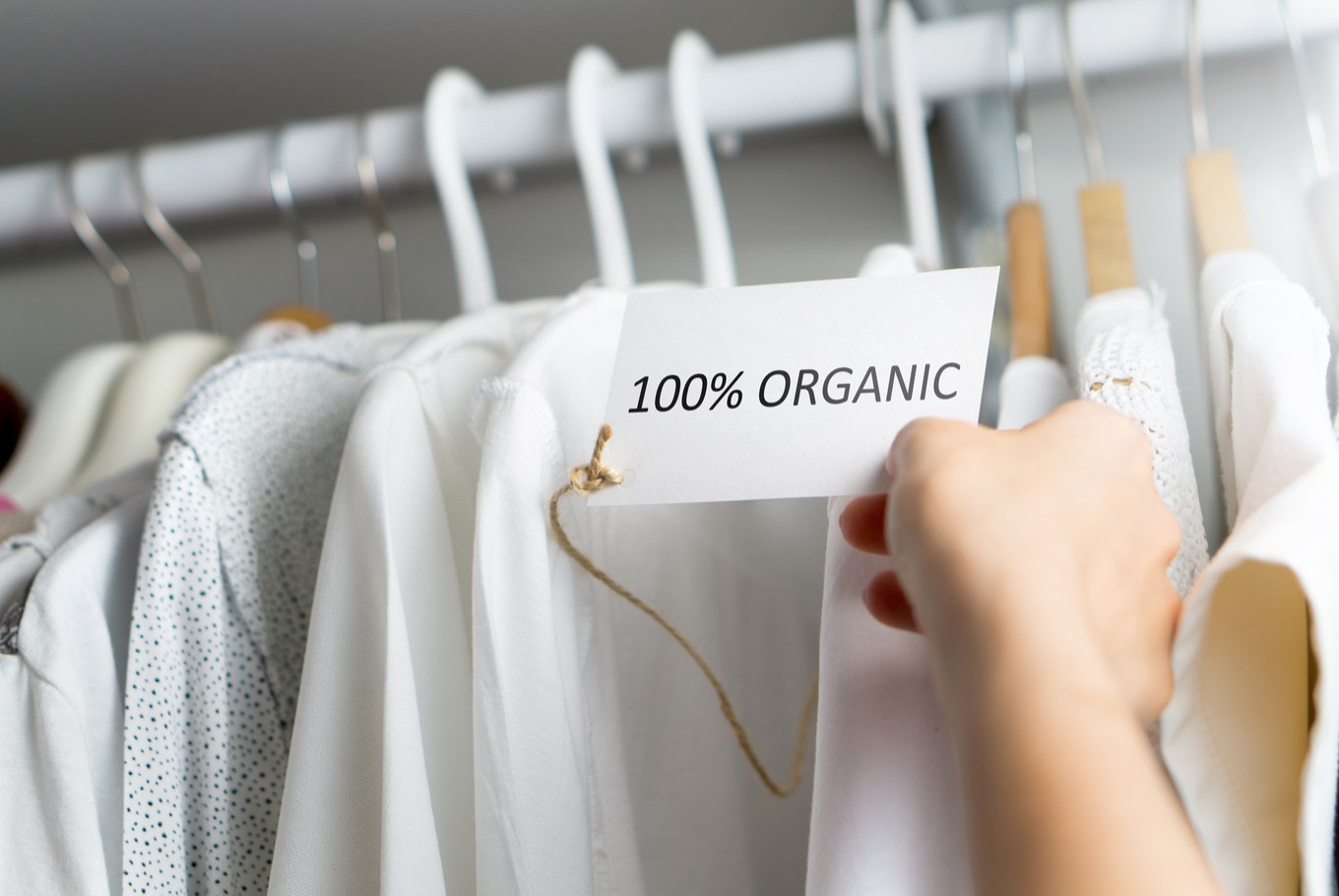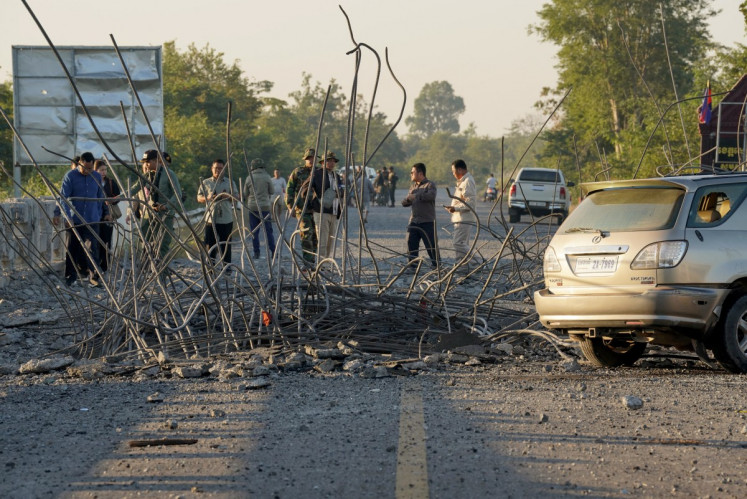Popular Reads
Top Results
Can't find what you're looking for?
View all search resultsPopular Reads
Top Results
Can't find what you're looking for?
View all search resultsTwo Jakarta labels drape their way to eco-fashion
Hlaii and Khaya Heritage are making an effort to reduce their waste footprint in Jakarta's fashion industry.
Change text size
Gift Premium Articles
to Anyone
T
wo Jakarta-based designers have taken several steps toward sustainable fashion by experimenting with more environmentally friendly production techniques.
Ayudya Paramitha “Mitha” Lengkoan, 31, is an architect working at the notable Andra Matin Architects Firm, but has run her own Hlaii fashion label since 2016. The label aims to design clothing that leaves less fabric on the production floor for tossing into the trash.
Mitha and her team have been working to reduce textile waste to zero to 15 percent. It was no easy feat, she said, but with a creativity and innovation, they were able to reduce waste.
Hlaii's clothes actually involve no cutting, as the entire length of the fabric is made into a continuous design using techniques she and her team have developed.
"We are usually working with a rectangular [piece of] fabric and use draping, crumpling and folding techniques. We often work without sketching, since I have no skills in pattern making," Mitha told The Jakarta Post on Saturday. Even when production involves several cuts, the label still stuck to its zero waste principle.
Her sensitivity to caring for high-quality fabrics also prompted Mitha to create zero waste designs, which she claims would make the clothing last. The label's clothes, dresses and kebaya (traditional Indonesian blouse) are all made to order, and clients can wait up to two weeks for the final piece.
"With this technique, high-value fabrics like songket (brocaded textile) or antique fabrics can always be transformed into whatever kind of clothing the owner desires, because they can undo the stitches,” Mitha said.
Hlaii's clothing starts from Rp 850,000 (US$60.75).
Since she has no formal training in making patterns, Mitha designs Hlaii's clothing from the intuition she developed as an architect.
"I like things that are asymmetrical. Balance does not have to be A equals A," she said.
Although the label is still relatively new in the industry, top Indonesian celebrities like Dian Sastrowardoyo, Yura Yunita and Gita Gutawa have been past clients.
Fashion is one of the world's most damaging industries according to a UN Environment report last June, which cited a recent study by the Ellen McArthur Foundation that found one truckload of textile waste was produced every second. The Copenhagen Fashion Summit also stated that the global fashion industry contributed 92 million tons of solid waste to landfills every year.
Meanwhile, the World Bank's 2017 statistics showed that the textile industry contributed about 20 percent of the world's industrial water pollution.
Such concerns, especially Jakarta's ever-growing heap of waste management issues, also prompted Jeanny Primasari. 35, and her sister Vonny, 31, to take the route to zero waste design a year ago with their 4-year-old label, Khaya Heritage.
The sisters' label is similar to Hlaii and uses little to no cutting, but it focuses primarily on ready-to-wear clothes instead of bespoke dresses.
Khaya Heritage also costs less, starting from Rp 200,000 to Rp 500,000 per piece.
“We used conventional techniques at the beginning, but since we switched to eco-fashion, we have been experimenting with new techniques like folding and draping. It was difficult at first, but we are learning each day,” said Jeanny.
Vonny said zero waste design meant that customers received the maximum value for their money, as they paid for – and got – the entire length of fabric used in the clothing. She added that they were also contributing minimal waste for the earth.
Aside from zero waste designs, Khaya Heritage also uses natural dyes made from plants instead of synthetic dyes as part of its sustainable fashion principle.
Further, Jeanny and Vonny said they had established developed an eco-fashion community, which comprised 70 clothing manufacturers and fashion enthusiasts by Saturday.
“Changing consumers’ perspective is the most important thing. Consumers should help clothing producers become aware that they expect sustainable fashion,” said Vonny. (ggq)










